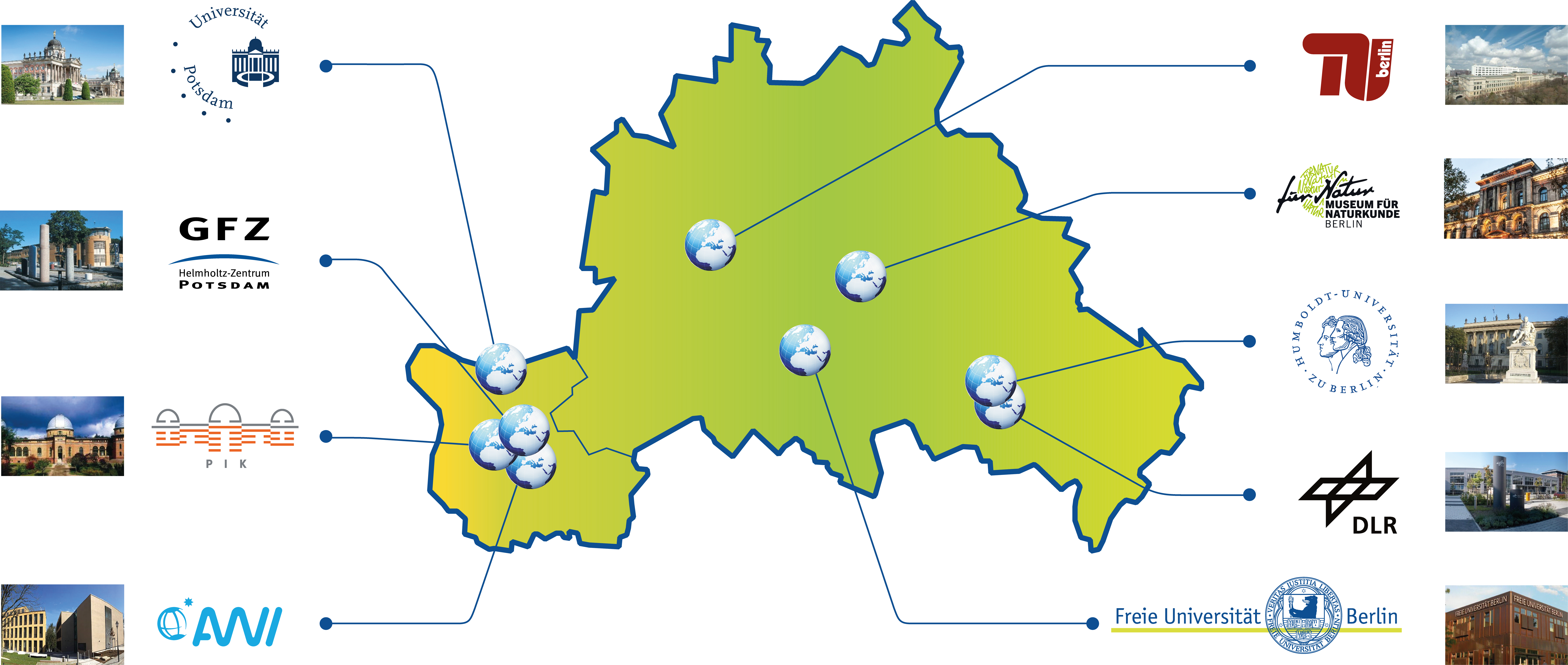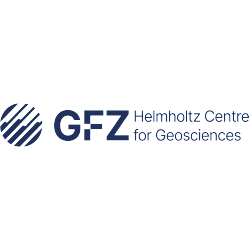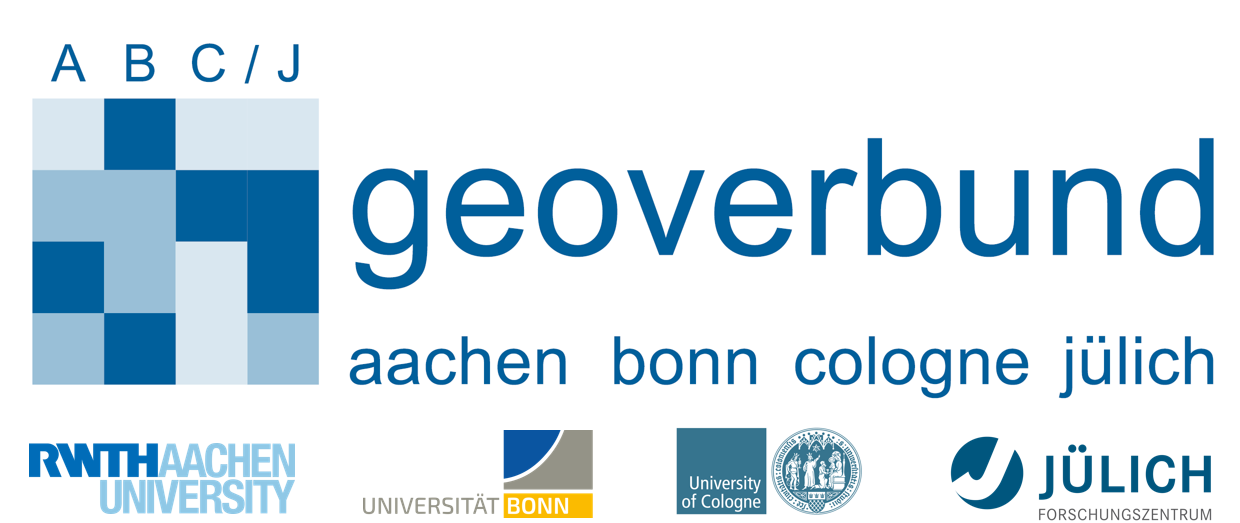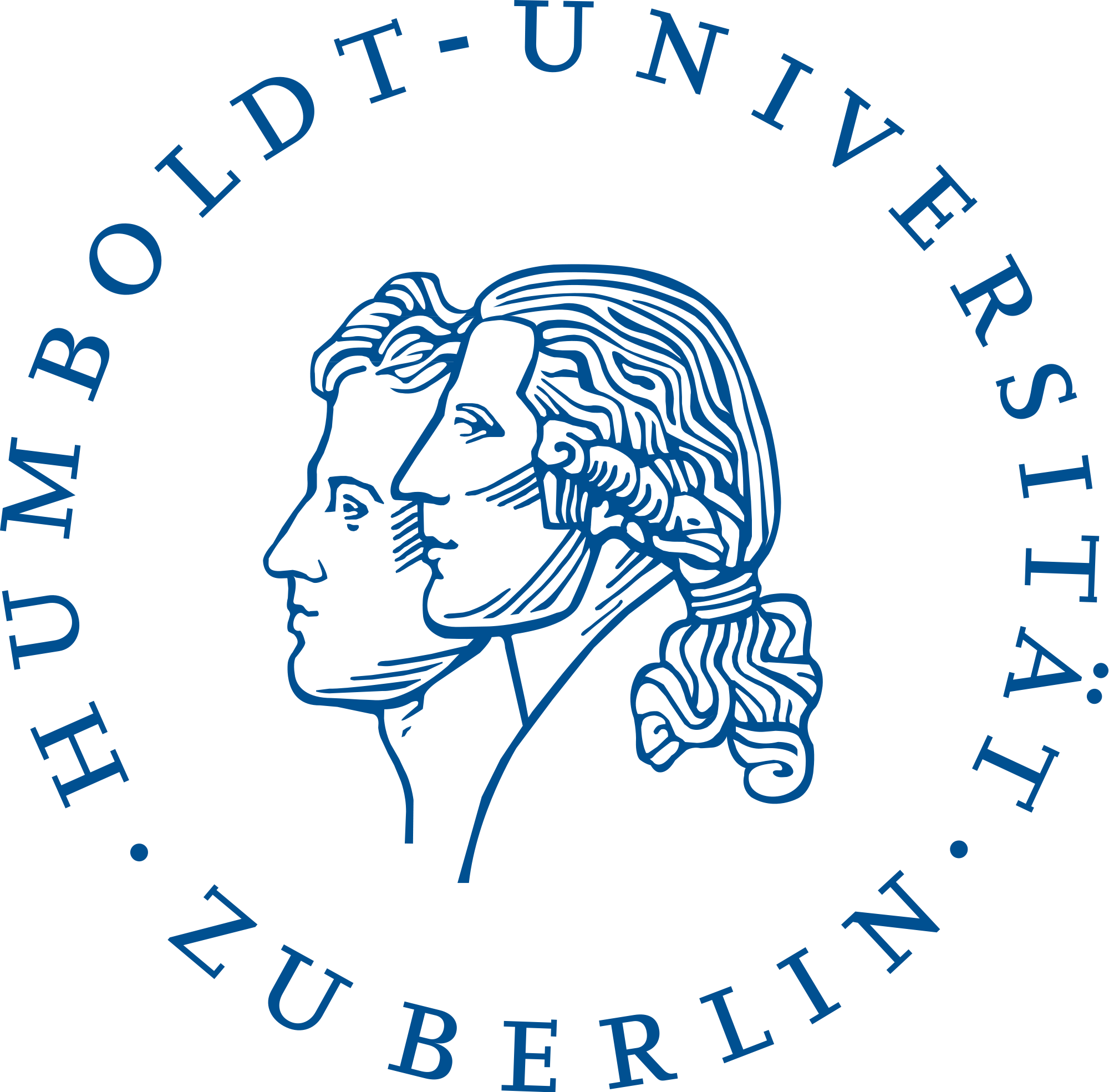Comprehensive geoscientific expertise in the metropolitan region of Berlin and Potsdam is bundled in the Geo.X research network. This network integrates universities and non-university research institutions. Geo.X partners are committed to a close cooperation in research, teaching, sharing joint infrastructure, internationalization and knowledge transfer. Geo.X is funded in equal parts by the Helmholtz Association and the Geo.X partner institutions.

Alfred-Wegener-Institute Helmholtz Centre for Polar and Marine Research (AWI) uses its competence to research climate-relevant processes in the permafrost regions on the mainland and the Arctic shelf seas, and in the polar atmosphere of the Arctic and Antarctic, via its Potsdam campus.
- Research Unit Potsdam Coordination: Dr. Liv Heinecke
The German Aerospace Center (DLR) Berlin-Adlershof carries out planetary research and exploration of the solar system, studies on the conservation of the environment, and the development of environmentally compatible technologies for the energy provision and mobility of tomorrow. Particular focuses are planetary remote sensing, geodesics and geology, asteroid and comet research with regards to endangering the Earth, planetary physics and interaction with biospheres and the search for and research of extrasolar plants.
- Institute of Planetary Research Coordination: Dr. Frank Sohl
Freie Universität Berlin (FU) distinguished as a university of excellence, has a large faculty of geosciences, which studies physical, chemical and biological processes in the Earth, on the Earth's surface and in the atmosphere, and the interactions between humanity and the environment.
- GeoCampus Berlin-Lankwitz/Dahlem Coordination: Dr. Jacob Hardt

GFZ Helmholtz Centre for Geosciences is the national centre for researching the solid Earth, and examines the Earth system with its partial systems and their interrelation. The methodological key competences of the GFZ cover the use and development of satellite technologies and space-based measurement procedures, in the operation of geodesic and geophysical measuring networks, in the tomography of the solid Earth with geophysical depth sounding, in the implementation of exploratory drilling, in laboratory and experimentation techniques, and in the modelling of processes. Since 1 January 2023, the former IASS has been renamed Research Institute for Sustainability (RIFS) and been administratively embedded into the GFZ Helmholtz Centre for Geosciences.
- GFZ Helmholtz Centre for Geosciences Coordination: Dr. Manja Luzi-Helbing
As a university of excellence, the Humboldt-Universität zu Berlin (HU) stands for "education through science". The geosciences concentrate on the area of geo remote sensing and informatics and the topic spectrum of geography.
- Geographical Institute
- Coordination: Dr. Omid Alizadeh

The Museum für Naturkunde – Leibniz-Institute of Evolution and Biodiversity Research (MfN) strengthens Geo.X’s scientific portfolio with research into impact events and biodiversity (geo-bioscience). Furthermore, the museum offers excellent opportunities for geosciences educational projects, with its exhibitions and research on scientific communication.
Museum für Naturkunde Berlin Coordination:Dr. Lutz Hecht

The Potsdam Institute for Climate Impact Research (PIK) addresses crucial scientific questions in the fields of global change, climate impacts and sustainable development. Researchers from the natural and social sciences work together to generate interdisciplinary insights and to provide society with sound information for decision-making.
The main methodologies are systems and scenarios analysis, modelling, computer simulation, and data integration.
Potsdam Institute for Climate Impact Research (PIK) Coordination: Alison Schlums
Technische Universität Berlin (TU) has its geosciences focus in geodesy and geotechnologies as well as modelling and geoinformation systems.
- Institute of Applied Geosciences
- Institute of Geodesy and Geoinformation Science (IGG)
- Institut für Landschaftsarchitektur und Umweltplanung
- Coordination: N.N.
Earth and environmental sciences at the University of Potsdam (UP) are amongst the four profile topics of the university as a "university research focal point". The departments focuse on Earth surface processes, natural hazard research and interrelations of the geo/biosphere internationally.
Research focus Environment and Geography
Coordination: Dr. Jürgen Mey
Cooperation
Seas and oceans play a central role in global climate processes. They are among the most important eco-systems on Earth and influence the lives of millions of people. There is a great need for knowledge on how to protect the oceans and make their use by humans more sustainable. The German Marine Research Alliance (DAM) aims to strengthen the sustainable use of coasts, seas and oceans through research and transfer, data management and digitalisation, and by coordinating the infrastructures. To this end, the DAM is working together with its member institutions to develop solution-oriented knowledge and to communicate potential courses of action to politics, business and civil society.

The Geoverbund ABC/J is the geoscientific network in the Research Region Aachen-Bonn-Cologne/Jülich. The geoscientific institutes of the RWTH Aachen University, the Universities of Bonn and Cologne and the Research Centre Jülich cooperate under the umbrella of this network. Through this cooperation, the expertise of the four partners in geoscientific research and teaching that has been acquired over decades is bundled and networked.

The Einstein Center Digital Future together with the Helmholtz Association have established a joint graduate program in Data Science. Established in 2018, the Helmholtz Einstein International Berlin Research School in Data Science– or HEIBRiDS for short – is an interdisciplinary program that trains young scientists in Data Science and in other scientific disciplines at the same time! It is our goal to educate a generation of researchers, who are exceptional data scientists and who understand the demands and the challenges of disciplines in which data science is a necessity.
NFDI4Earth addresses digital needs of Earth System Sciences. Earth System scientists cooperate in international and interdisciplinary networks with the overarching aim to understand the functioning and interactions within the Earth system and address the multiple challenges of global change. NFDI4Earth is a community-driven process providing researchers with FAIR, coherent, and open access to all relevant Earth System data, to innovative research data management and data science methods.









